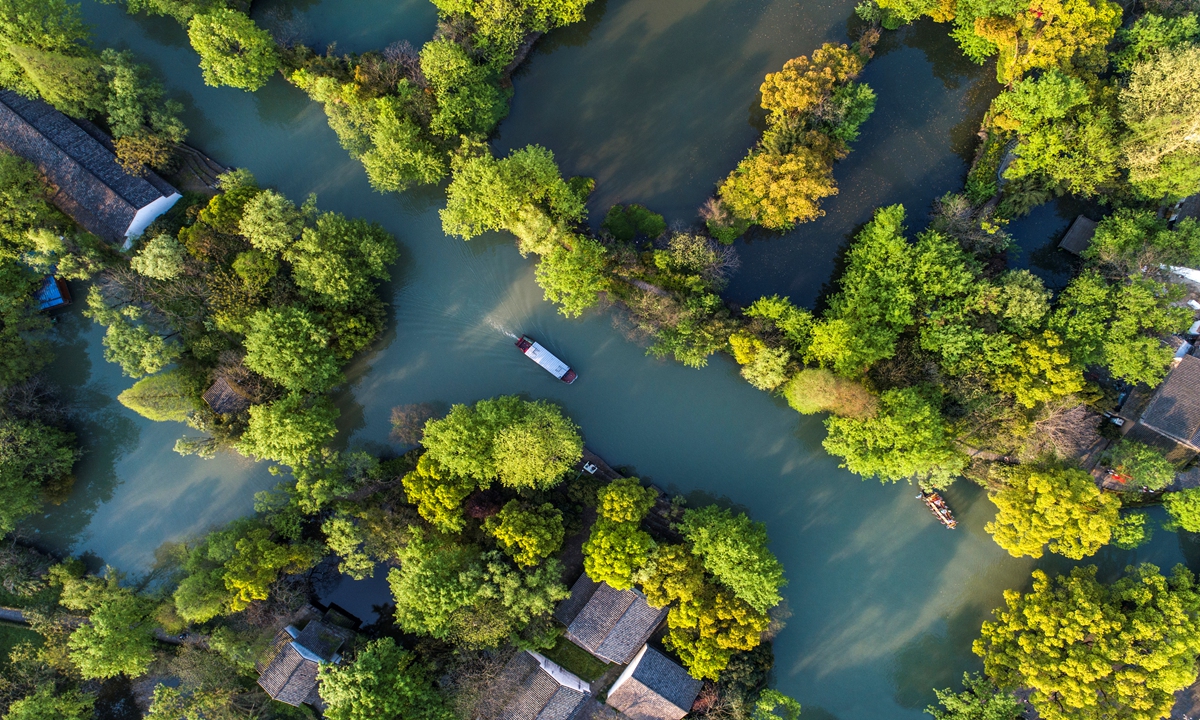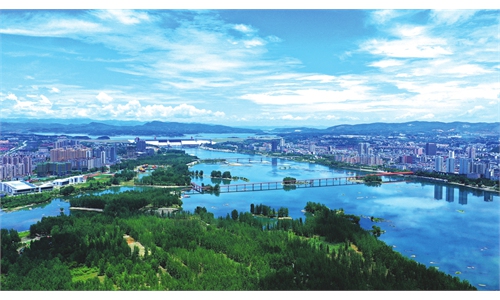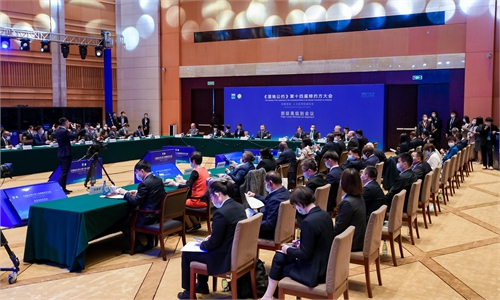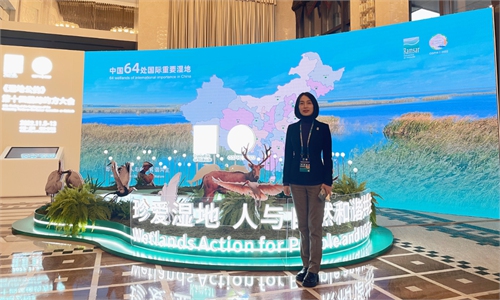China among countries with most complete types of wetlands as 18 more Ramsar sites added this year

Aerial photo shows the scenery of the Xixi National Wetland Park in Hangzhou, East China's Zhejiang Province. Photo: VCG
China has added 18 wetlands, bringing the total number of "Wetlands of International Importance" (known as Ramsar sites) across the country to 82, ranking No.4 in the world and covering 7.65 million hectares, China's National Forestry and Grassland Administration announced on Thursday, which marked the 27th World Wetlands Day.
With a total wetland area of about 56.35 million hectares, China is one of the countries that has the most complete types of wetlands.
Among the 43 international wetland cities accredited by the Convention on Wetlands, or Ramsar Convention, 13 are from China, ranking first in the world.
Apart from Ramsar sites, China has 29 national and 1,021 provincial important wetlands, as well as 903 national wetland parks.
This year's World Wetlands Day themed as "Wetland Restoration" aims at raising public awareness of the contribution of wetlands to people and the planet, and to promote action to restore wetlands.
Dubbed "the kidneys of the Earth," wetlands are one of the Earth's three major ecosystem types, along with forests and oceans. Wetlands play an important role in conserving and purifying water, storing floodwater for use against drought, regulating the climate and maintaining biodiversity, which cannot be replaced by other ecosystems.
Wetlands are an extremely precious natural resource to maintain the security of the environment, food and water resources.
The 18 wetlands added in China are located in Beijing, Northeast China's Heilongjiang Province and East China's Jiangsu Province, among others, officials said at an event in Hangzhou, East China's Zhejiang Province on Thursday.
The ecological status of "Wetlands of International Importance" remains stable on the whole, according to a wetland monitoring report issued at the event.
The total area of wetlands increased from the previous year, with water quality improved and water supplies remaining stable.
Meanwhile, the species richness, a single facet of biodiversity, has improved, with 2,391 species of wetland plants distributed among the wetlands.
The conservation and restoration work of wetlands achieved remarkable results, with degraded wetlands in Heilongjiang, Hubei, Shandong and Hainan provinces effectively restored.
Appreciating China's leadership role at COP14, Musonda Mumba, secretary general of the Ramsar Convention, said that China has continued to improve its legal and policy frameworks, implemented China's Wetlands Conservation Law and the National Wetland Protection Plan (2022-30), and strengthened the protection and management of domestic wetlands.
Since joining the Ramsar Convention in 1992, China has taken active responses to global challenges such as wetland area reduction and degradation of ecological functions.
During the 13th Five-Year Plan (2016-20), China invested 9.87 billion yuan ($1.46 billion) to implement 53 wetland protection and restoration projects, and there were more than 2,000 subsidy programs for wetland compensation, converting cultivated land into wetlands, as well as wetland protection and restoration.
A total of 467,400 ha of degraded wetlands were restored and the area of wetlands was increased by 202,600 hectares.
As an important participant, contributor and leader of global wetland conservation and restoration, China vows to actively fulfill its obligations under the convention, continue to strengthen the protection of the authenticity and integrity of wetlands, implement the national wetland protection plan and carry out major wetland protection projects, as well as include more important wetlands in the management of protected natural areas and improve the platforms for international exchanges and cooperation.
Global Times



